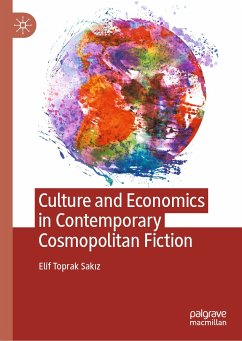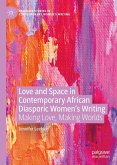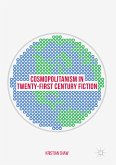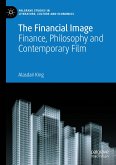- Kristian Shaw, Associate Professor of English Literature, University of Lincoln, U.K
"Through an engaging assessment of exemplary works of contemporary British fiction, Toprak-Sakiz provides a rich, thoughtful and critical reflection on the multiple meanings and dimensions of cosmopolitanism. This is an extremely timely and vital discussion on a key topic for our turbulent times."
- Steven Vertovec, Director of the Department of Socio-Cultural Diversity, Max Planck Institute for the Study of Religious and EthnicDiversity, Germany
This book investigates how culture and economics define novel forms of cosmopolitanism and cosmopolitan fiction. Tracing cosmopolitanism's transition from universalism to vernacularism, the book opens up new avenues for reading cosmopolitan fiction by offering a precise and convenient set of terminology. The figure of the cosmoflâneur identifies a contemporary cosmopolitan character's urban mobility and wandering consciousness in interaction with the global and the local. Posthuman cosmopolitanism also extends the meaning of cosmopolitan which comes to embrace the nonhuman alongside the human element. Defining narrative glocality, political hyper-awareness, and narrative immediacy, the book thoroughly explores how cosmopolitan narration forges direct responses to the contemporary world in postmillennial cosmopolitan novels. All of these concepts are elaborated in Ian McEwan's Saturday (2005), Zadie Smith's NW (2012), Salman Rushdie's The Golden House (2017), and Kazuo Ishiguro's Klara and the Sun (2021), to which world-engagement is central.
Elif Toprak Sakiz holds a PhD in English Literature from Middle East Technical University, Ankara, Türkiye. Her areas of interest include cultural studies, twenty-first-century fiction, narrative theory and posthumanism. She is a lecturer of Foreign Languages and Comparative Literature at Dokuz Eylul University, where she has been teaching since 2010. She has published several articles in the fields of contemporary fiction, postcolonialism, gender studies and comparative literature.
Dieser Download kann aus rechtlichen Gründen nur mit Rechnungsadresse in A, B, BG, CY, CZ, D, DK, EW, E, FIN, F, GR, HR, H, IRL, I, LT, L, LR, M, NL, PL, P, R, S, SLO, SK ausgeliefert werden.









